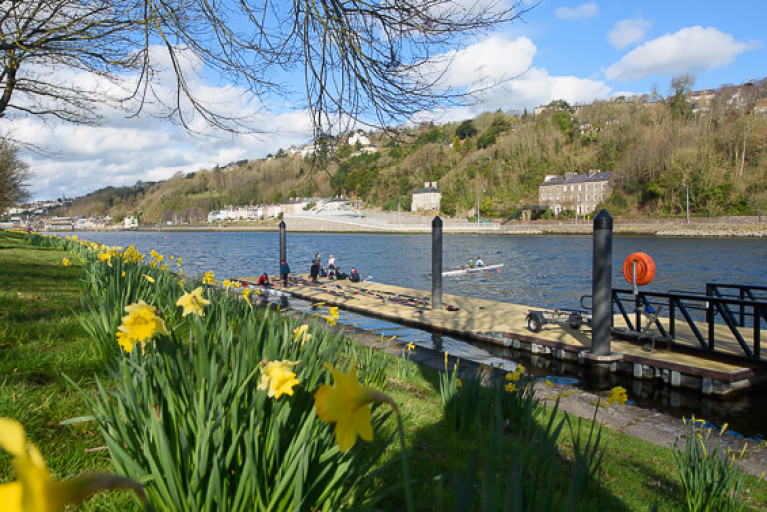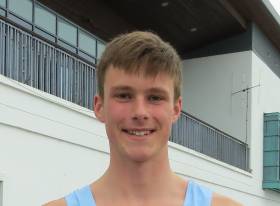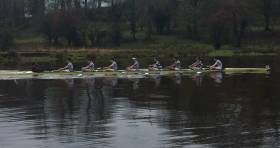Displaying items by tag: Cork Head
Cork Head of the River Rowing Postponed until March 7th
The Cork head of the river rowing event due to be held this Saturday at the Marina in the city has been postponed. The committee decided on this course of action because of the bad weather forecast for this weekend.
“Due to the adverse weather forecast for this weekend, and after getting approval from the Domestic Events committee in RI, Cork City Regatta Committee have decided to postpone Cork Head to the following weekend, Saturday March 7th, in the interests of safety. Under Rowing Ireland rules, the draw remains in place as is," the organisers said in an email to clubs.
Shandon Excel at Cork Head of the River
#Rowing: Shandon amassed a big set of wins at the Cork Head of the River at the Marina on Saturday. Their men’s senior quadruple, competing in the fourth head, set the fastest time of 12 minutes 3.4 seconds, while their men’s senior eight were just .6 of a second slower. They competed in head one and were the second-fastest crew overall. Jack Dorney was the fastest single sculler.
Cork Boat Club's women reeled off a set of wins. The fastest women’s crew was their club two eight, while Grace Collins of the same club was the fastest women’s single sculler.
Cork Head of the River, The Marina, Saturday (Selected Results)
Overall: 1 Shandon men’s senior quadruple 12 minutes 3.4 seconds (Head Four), 2 Shandon men’s senior eight 12 mins 4 secs (Head One), 3 Cork men’s inter eight 12:17.3 (H1).
Men
Eight – Senior: Shandon 12:04.0. Inter: Cork 12.17.3. Club Two: Shandon 13.13.
Four – Sen: Shandon 12:37. Inter, coxed: Shandon 13:55.3. Club Two, coxed: Waterford 15:41.6. Jun 18A, coxed: Shandon 14:13.3.
Pair – Sen: Cork A 13:44.1. Jun 18A: Fermoy 14:28.9. Jun 16, coxed: Presentation (Rolling Head) 14:24.6. Masters, coxed: Shandon (b) 15:17.4.
Sculling – Quadruple – Sen: Shandon 12:03.4. Inter: Shandon 12:36.2. Jun 18A: Lee B 12:53.1. Masters, coxed: Shandon A (a) Rolling Head 15:24.8
Double – Club Two: Shandon 15:27.5. Jun 18A: Cork 13:41.3.
Single – Sen: 1 Shandon (J Dorney, sen, H2) 15:18.8. Inter: Cork (C O’Sullivan) 15:44.7. Club Two: Lee (P Hearty) 18:11.1. Jun 18A: Lee (A Sheehan, H2) 15:30.2. Jun 16: Kenmare (T Kelly) 15:48.7. Masters: Shandon (H Merz, d; Rolling Head) 15:25.7.
Women
Eight – Club Two: Cork 14:28.5. Pair - Sen: Cork 16:47.2. Jun 18: Cork A 16:08.
Four – Club Two, coxed: Cork A 15:04.9. Masters, coxed: Cork (d) 16:38.4.
Sculling – Quadruple – Inter: Cork 15:27.3. Jun 18A: Shandon A 15:23.1. Jun 16, coxed: Lee 16:19.2. Masters, coxed: Graiguenamanagh (b) 17:15.2.
Double – Inter: Cork A 15:11. Jun 18A: Lee A 15:37.3.
Single – Inter: Cork (G Collins) 16:13.4. Club Two: Shandon (J Legresley) 16:01.5. Novice: Lee (O Commins) 17:35.9. Jun 18A: Kenmare (E Crowley) 15:38.7. Jun 16: Shandon (J Forde) 15:55.9. Masters: Shandon (J Legresley; b) 17:49.8 (Rolling Hd)
Fierce Weather Forces Erne and Cork to Postpone Heads
#Rowing: The two heads of the river scheduled for this Saturday have fallen foul of the weather, although both are set to be rescheduled. The Erne Head, at Enniskillen, had drawn a top-class entry. But while conditions at Enniskillen might well be rowable on Saturday, travel to the venue, especially on Friday, would prove difficult at best because of snow and high winds. The organisers hope to run the event on March 10th. Cork Head has also been cancelled, and organisers say the are also hoping to have it held on a new date.
































































